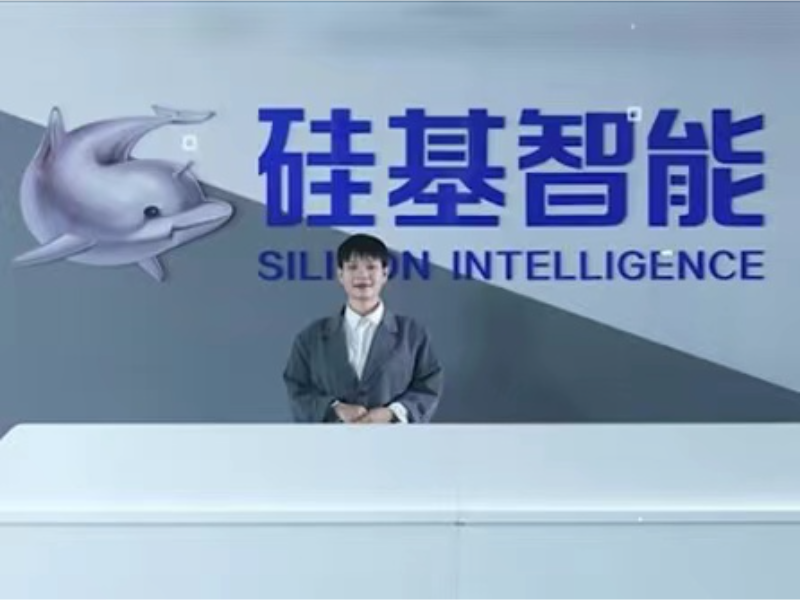- In BTW’s exclusive interview with a brand manager at Silicon Intelligence, it shows that the company develops AI avatars to memorialise deceased loved ones, driven by a desire to maintain emotional connections.
- The technology has gained significant market interest with over a million users recognising its value despite ethical concerns.
- The company aims to expand its AI applications into education, healthcare, and entertainment to further societal progress.
In the exclusive interview with a brand manager at Silicon Intelligence, he discusses how it is revolutionising the way we memorialise loved ones by developing AI avatars that preserve the essence of those who have passed away. The company, inspired by a personal story of loss, aims to address the emotional needs of families seeking to maintain connections with deceased relatives. Their innovative technology allows users to interact with realistic digital representations, offering comfort and a sense of continuity in the grieving process.
Silicon Intelligence discussed the company’s commitment to ethical AI development and its growing user base, which has exceeded one million across North America, Europe, and Japan. He highlighted the importance of ensuring that AI avatars accurately reflect the personalities and nuances of individuals through extensive data collection and advanced neural networks. Looking forward, Silicon Intelligence plans to expand its technology beyond digital immortality, exploring applications in education, healthcare, and other sectors to enhance lives and foster societal progress.
Q: What inspired Silicon Intelligence to develop technology that creates AI avatars of deceased loved ones?
The inspiration for developing AI avatars to memorialise deceased loved ones stems from a deep human desire to preserve connections that transcend physical life.
Silicon Intelligence Company
The inspiration for developing AI avatars to memorialise deceased loved ones stems from a deep human desire to preserve connections that transcend physical life. Our founder, Mr. Sima Huapeng, was particularly moved by the story of a colleague who wished to preserve the memory of his late mother. This emotional impetus led to the innovation that now allows families to maintain meaningful connections with loved ones who have passed away.
Q: What is the current market reaction to this technology? What about user acceptance and demand?
The market has shown strong and growing interest in our digital immortality technology. While there are natural concerns around the ethical and emotional implications, we are seeing a steady increase in demand as people recognise the value of preserving personal legacies through AI. Our AI avatars have been particularly well-received by families who wish to maintain a connection with their deceased loved ones. Additionally, our DUIX.ai technology has gained significant traction globally, with over one million registered users in North America, Europe, and Japan.
Q: How do you ensure that the AI avatars accurately reflect the personality and nuances of the deceased?
Our advanced neural networks meticulously replicate the unique characteristics of individuals, from their mannerisms to their speech patterns, ensuring an authentic experience for users.
Silicon Intelligence Company
Ensuring the accuracy of our AI avatars is central to our mission. We employ extensive data collection—including voice recordings, videos, and personal writings—to train our AI models. Our advanced neural networks meticulously replicate the unique characteristics of individuals, from their mannerisms to their speech patterns, ensuring an authentic experience for users. For example, our DUIX.ai technology, powered by the MOTM-X and EMOTE-X deep learning models, enables real-time generation of complex AI digital human motions and accurately reflects 27 human emotions, making interactions with AI avatars indistinguishable from those with real people.

Q: What do you see as the most significant emotional and societal impacts of this technology, both positive and negative?
Our technology has significant emotional and societal impacts. On the positive side, it provides comfort to those grieving, offering a way to continue relationships that death would otherwise end. It also opens new avenues for preserving cultural and personal histories. As demonstrated at the WWEC 2024 Educators Conference, our DUIX.ai technology empowered two hearing-impaired individuals to speak publicly through their AI avatars, breaking down communication barriers and offering a powerful example of AI’s potential to enhance lives. However, we are also mindful of the challenges, such as ethical concerns regarding consent and potential emotional dependency on AI avatars. We are committed to ensuring that our technology is used responsibly and beneficially.
Q: What are Silicon Intelligence’s plans for future product development?
Silicon Intelligence is focused on advancing our AI capabilities and exploring new areas of application. Beyond digital immortality, we are actively developing solutions in education, healthcare, and entertainment. For instance, our VPPT.AI product uses AI models to replicate teachers, offering personalised educational content and significantly improving education quality and access. We believe these innovations will benefit a broader audience and drive societal progress.

Silicon Intelligence transforms connections with AI avatars
Silicon Intelligence stands at the intersection of technology and human emotion, offering innovative solutions that transform how we remember and connect with loved ones. By harnessing advanced AI to create realistic avatars, the company not only addresses the universal need for connection but also navigates the ethical complexities of such technology. As it expands its focus into new applications, Silicon Intelligence is poised to make a lasting impact across multiple sectors, promoting sustainability and enhancing the human experience in meaningful ways.

